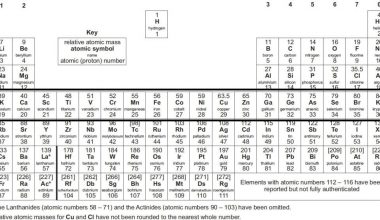Many students and parents have been pondering if GCSE exams can be taken online, especially in our increasingly digital age.
With technology revolutionizing various aspects of education, it’s only natural to wonder if one of the most important milestones in a student’s academic journey can be moved into the online realm.
Even if you’re studying a GCSE course online, you’ll still need to sit your exam in person. However, it is entirely possible to study practically every GCSE exam course online.
Let’s find out more about taking GCSE online and how the exams can be done.

Table of contents
- Can GCSE Exams Be Taken Online?
- Who Studies for their GCSEs Online?
- What are the Benefits of Learning your GCSEs Online?
- What are the Drawbacks of Learning Your GCSEs Online?
- When Should I Book my GCSE Exams?
- Where Can I Sit my GCSE Exams?
- What Will I Need to Book My Place?
- What will I Need to Take with Me to Write my GCSE Exam?
- What Does the Future Hold for GCSE Exams?
- FAQs
- Conclusion
- References
- Recommendations
Can GCSE Exams Be Taken Online?
In a nutshell, no, you cannot take GCSE exams online. However, the GCSE preparation process and prerequisite courses can also be accomplished online.
The development of online learning over the past few decades has made it possible to complete the entire GCSE course online. Fortunately, purchasing books and other physical items is far less hassle-free.
Candidates will have access to all of their interactive course materials once they have been accepted by a specific teaching organization. A tutor is usually there throughout the online course, which is incredibly beneficial because there is nearly always support!
All of your learning can be done online, but exams cannot. You must visit an exam center and submit an application to be a Private Candidate in order to take the exams there.
To register with the awarding authority, all you need is a form and identification. The examination center will also send the exam dates and times (which are often in May or June) to you, so you won’t need to worry.
See also: All GCSE Subjects: Why You Need to Make the Choices You Made
Who Studies for their GCSEs Online?
Anyone can study for their GCSEs online. However, homeschooled students, adults, persons who might otherwise be ill, or people who are retaking their GCSEs are frequently those who learn their GCSEs online.
For people who may not be able to regularly attend secondary school or who are homeschooled, taking GCSEs online is one option. The only valid requirements for a candidate are Wi-Fi, a computer, and a means of transportation to the examination center.
Being forced to learn with a group of kids who are all at the same academic level can be intimidating for individuals who are retaking GCSE examinations (like adults). Online GCSE learning is really beneficial for this reason! It gives private candidates—those who sit for their GCSE exams and attend classes other than secondary schools—a means to learn without being intimidated by other students.
If you weren’t happy with your results, retaking the tests using online GCSE classes is a terrific method to earn better grades! Retaking GCSEs is not as horrible as it is stigmatized to be, and you should do it whenever possible if the grade you needed or sought didn’t match up with the results.
There is no need to worry about it because it also demonstrates commitment and discipline to prospective companies and universities. Since they are issued by the same awarding authorities as traditional GCSE courses, online GCSE courses are completely certified.
See also: Can You Retake a GCSE If You Have Already Passed?
What are the Benefits of Learning your GCSEs Online?
It’s crucial to keep in mind that taking GCSEs online will have both benefits and downsides. Make a well-considered choice if you’re thinking about applying as a private applicant.
The accessibility of online courses for people who are unable to attend secondary school is a benefit. There’s really no need to put your entire life on hold for GCSE exams because learning online offers far greater flexibility in terms of curriculum learning. A flexible schedule also equates to a healthier and more balanced way of life!
Additionally, a significant portion (if not all!) of the websites that offer GCSE syllabuses will contain a wide variety of interactive materials created especially for private applicants. Likewise, candidates will have access to the best GCSE tutors who can offer a ton of assistance along the road!
The concentration of the applicants might also be increased by switching to online GCSE study. There are no interruptions or side diversions during online lessons. To get their students interested in the material, teachers might employ a variety of strategies.
See also: What Are GCSE Mock Exams? Your Ultimate Guide for GCSE and A-Level
What are the Drawbacks of Learning Your GCSEs Online?
The costs associated with each GCSE course might add up to be extremely high, which is one major disadvantage. Since the government pays for their GCSEs, state secondary school students do not have to pay for them.
The platforms that private applicants use to learn must be paid for out of pocket, especially if they are studying all of their subjects online. Even the actual exam fees, which are often determined separately, are not included in this.
In addition, school frequently plays a significant role in social interactions in daily life. Students who take their GCSEs online could feel lonely. The flexible schedule does, however, allow for time off to spend with friends.
Since there may not be enough space at home or there may be a tendency to delay, some individuals may also focus better in a classroom setting than when learning online.
See also: What to Do if You Fail Your GCSEs in 2023 | Expert Advice for 2023
When Should I Book my GCSE Exams?
Since you cannot do GCSE exams online, so, all exams must be booked in advance and it’s your responsibility to organise this for yourself.
The best chance you’ll have of receiving a spot at your selected center is to book your exam roughly six months before the exam date you’ve chosen.
Although you can schedule your exam closer to the exam date, we don’t really advise that you do so because you may not be able to reserve a spot and will be charged “late fees” if you do.
Winter examinations often have a booking deadline of September or October, while booking deadlines for summer exams are typically January or February. If you manage to get a spot after these dates, they will charge you an additional fee.
See also: When Do GCSEs Start And Finish in 2023?
Where Can I Sit my GCSE Exams?
Your local exam center, which is likely to be a school or college that is already presenting its own pupils for the exam, is where you may often take your GCSE exams rather than online.
Using the following search tools, you can locate your nearby exam centres:
These resources won’t cover every location, therefore we advise contacting nearby schools and colleges to find out if they welcome outside applicants.
Not all centers will allow private applicants, but if you have a special connection to a school—for example, if it was your previous school or your child’s school—they might still accept you despite their policy against accepting private applicants.
When you book the exam, you should be aware that the majority of centers will charge an admin fee to cover their additional expenses.
The actual cost will depend on the exam center you select and you must pay directly to that facility. It would be worthwhile to compare a few centers in your neighborhood since these fees can vary greatly across them and might range from £15 to £150 per subject.
See also: Top 15 Websites for GCSE Revision in 2023 with Answers
What Will I Need to Book My Place?
If you want to ensure that booking your exam spot goes smoothly, it’s important that you have all the necessary information on hand.
The proper exam code, also known as a syllabus, specification, entry, or course code, is required in order to register for the exams you wish to take. In the event that you cannot locate this or are not sure of which code you require, you should get in touch with your course provider.
In addition, the exams officer at the center will require:
- Your full name and date of birth (these will need to be verified with ID)
- Your address and contact details
- Your Unique Candidate Identifier (UCI)
You will find your UCI on your previous qualifications if you have taken UK exams in the past. If not, don’t worry; the exam board will assign one to you.
To ensure that you will be able to offer it, you should always inquire in advance about the acceptable forms of identification. Exam centers typically require a valid passport, but if you don’t have one, you might be able to use another kind of photo ID, like a current driver’s license.
Typically, you must make your payment at the time of reservation. You should be aware that if you decide to withdraw later, you may not receive a complete refund because the exam center would have spent money to register you for the exam.
See also: When Should You Start Revising for GCSEs?
What will I Need to Take with Me to Write my GCSE Exam?
The examination officer should provide you with directions on the day of the exam, but we’d advise arriving approximately 30 minutes early in case you have trouble finding the room.
If it’s been a while since your last exam, here is a reminder of the limitations on what you are permitted to bring with you into the exam room.
DO take:
- A bottle of water
- A calculator unless the exam paper specifies otherwise
- A clear pencil case or bag
- Black pens
- Maths equipment such as a pair of compasses, a ruler, protractor etc. if required
- Your photo ID
- Your Statement of Entry (this is not essential but might be helpful)
DON’T take:
- A smartwatch
- A Wi-Fi-enabled calculator
- Any pieces of paper even if they are blank (except for Maths exams, where you’re allowed a small piece of tracing paper)
- Your mobile phone
Even with the phone off, you risk being disqualified from the exam if they find it on you. The Joint Council for Qualifications guideline precludes the exam center from having any say on this.
If at all possible, leave your phone at home or leave it with the invigilator to keep for you.
See also: How Many GCSEs Do You Have To Take? 2023 GCSE Q&A
What Does the Future Hold for GCSE Exams?
The future of GCSE exams could involve a hybrid approach, combining the strengths of both traditional and online assessment methods. Embracing technology for certain aspects of the exam while preserving the rigor and security of in-person testing might strike a balance that benefits all stakeholders.
Hybrid models, blending in-person and online assessment, hold promise. Such a combination enables students to leverage digital tools and resources, while still maintaining the integrity of the examination process.
Moving to online components could enhance flexibility, catering to diverse learning styles. Subjects demanding practical skills might incorporate online simulations, providing a more immersive experience. However, ensuring uniformity in evaluating these practical skills online remains a challenge.
In this dynamic future, continuous evaluation and formative assessment might gain prominence. Instead of relying solely on high-stakes exams, students could benefit from ongoing feedback, aiding their learning journey. This approach encourages holistic comprehension and helps students identify areas for improvement.
Collaborative platforms and peer-to-peer interactions could also find their place in this evolving landscape. Encouraging students to engage with course materials through discussions and group activities could foster deeper understanding. However, monitoring such interactions to prevent cheating would be essential.
Nonetheless, challenges persist. Equitable access to technology and resources is a concern, and addressing it would be pivotal for any transition. Striking the right balance between technology and fairness is a key consideration for educators and policymakers. Ultimately, the future of GCSE exams seems to be a harmonious blend of tradition and technology, enhancing the learning and assessment experience for students.
See also: How to Find Your GCSE Results Online?
FAQs
No, GCSE exams are currently offered in traditional pen-and-paper formats.
Online proctoring is being explored, but challenges remain for its effective implementation.
While some subjects could fit online assessment, challenges like access and fairness persist.
The future of GCSE exams might involve a blend of traditional and online methods, focusing on balance and flexibility.
Conclusion
While the idea of taking GCSE exams online is an appealing one, the current educational landscape presents several challenges that must be carefully addressed.
The integrity of the assessment process, security against cheating, and equitable treatment for all students remain paramount.
As technology continues to shape education, finding a harmonious blend between traditional and online assessment methods might pave the way for a more versatile and effective approach to evaluating students’ knowledge and skills.
References
- Thinkstudent.co.uk – Can You Take Your GCSE Exams Online?
- Icslearn.co.uk – How to Book Your GCSE and IGCSE Exams






